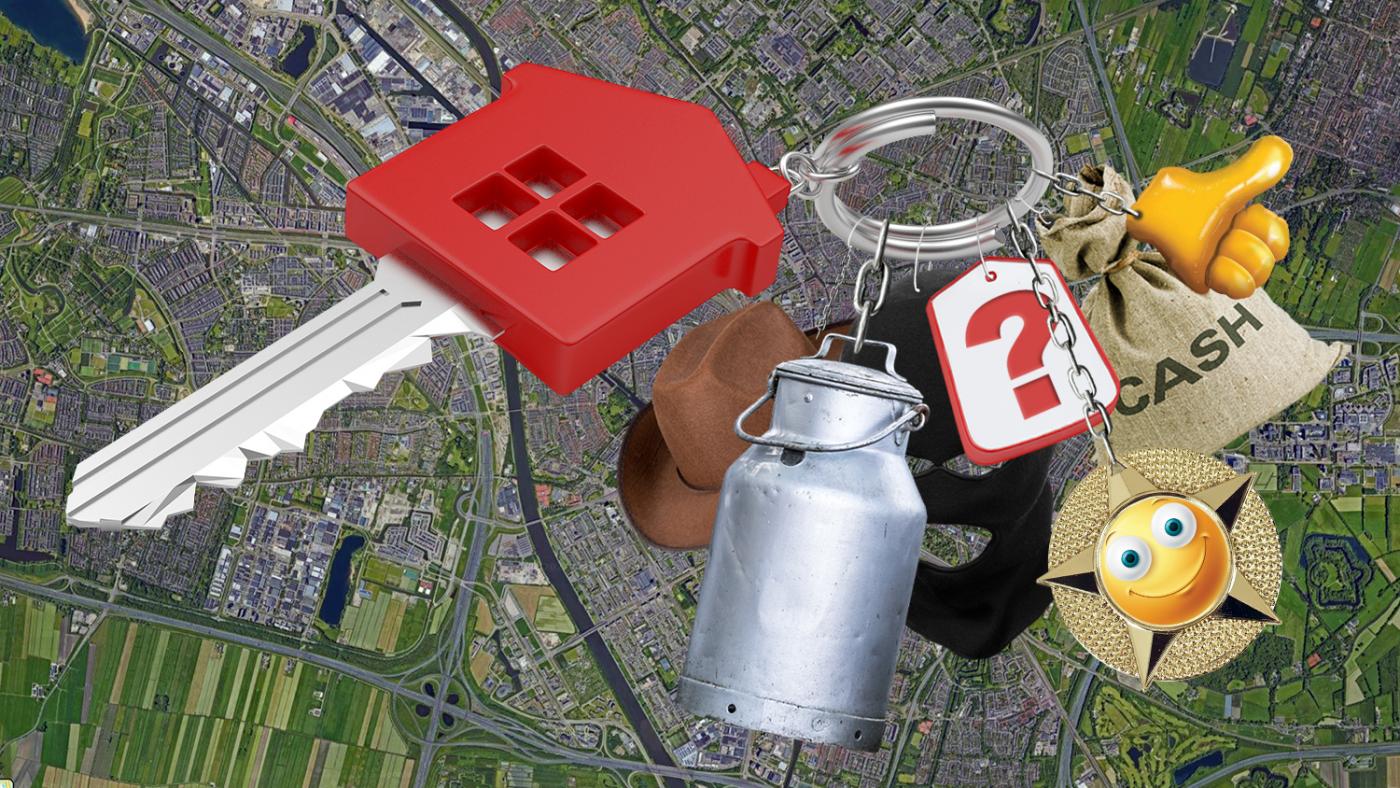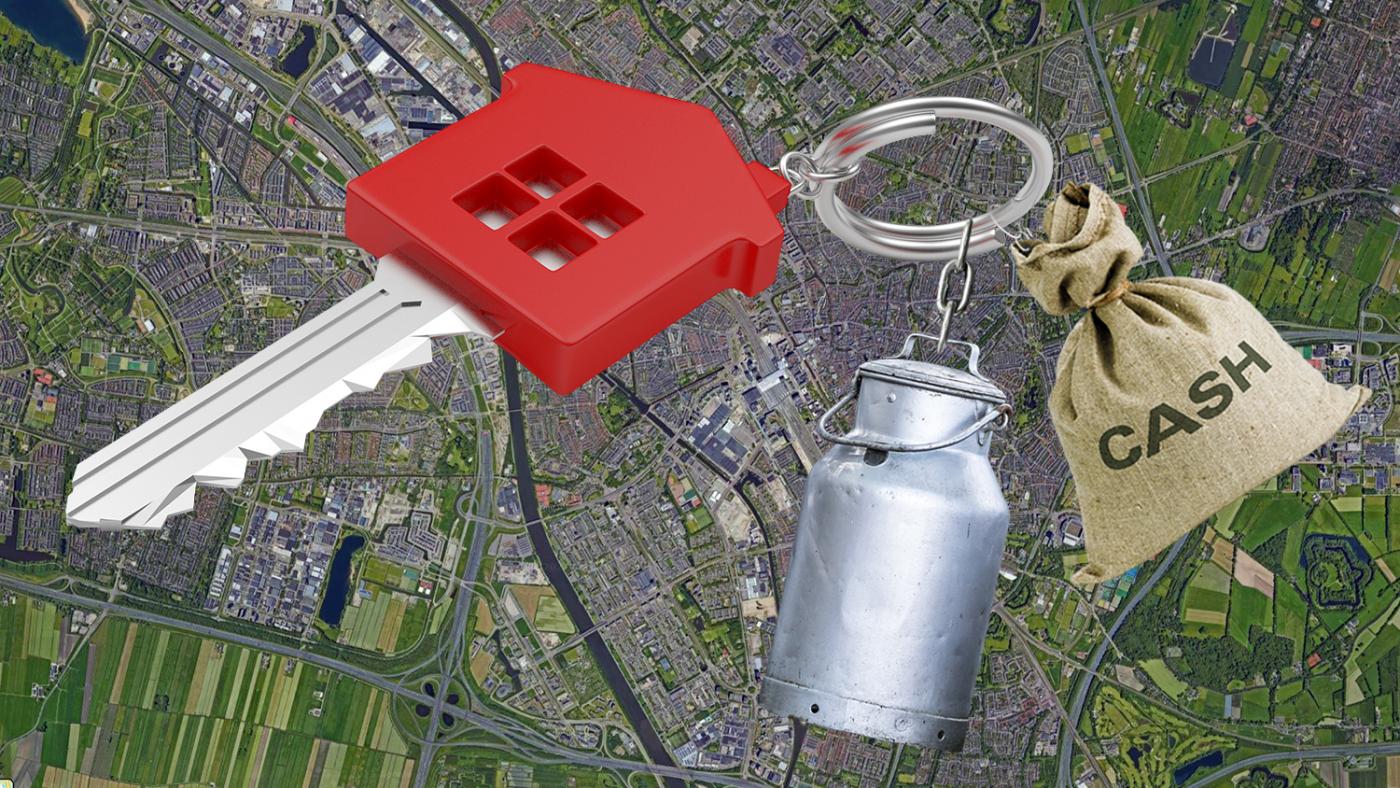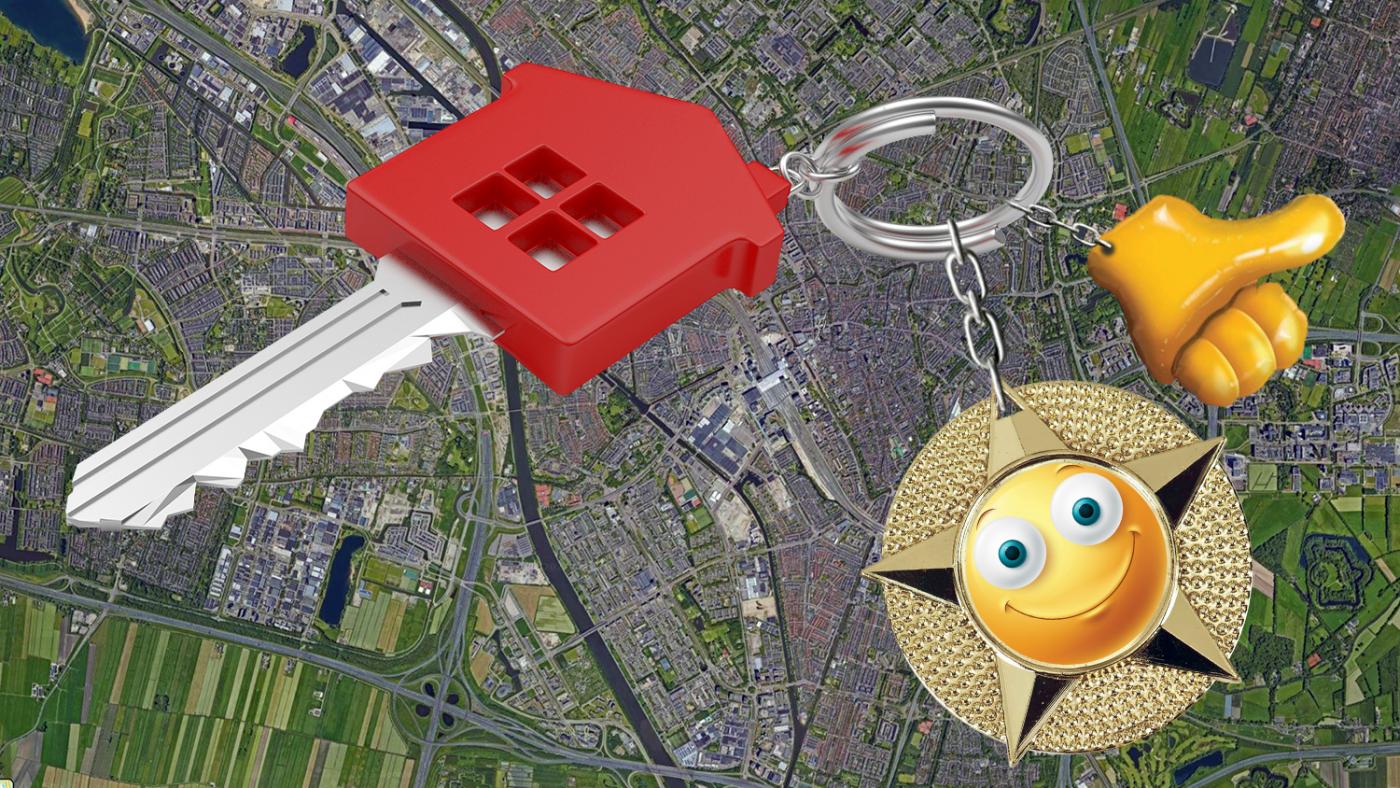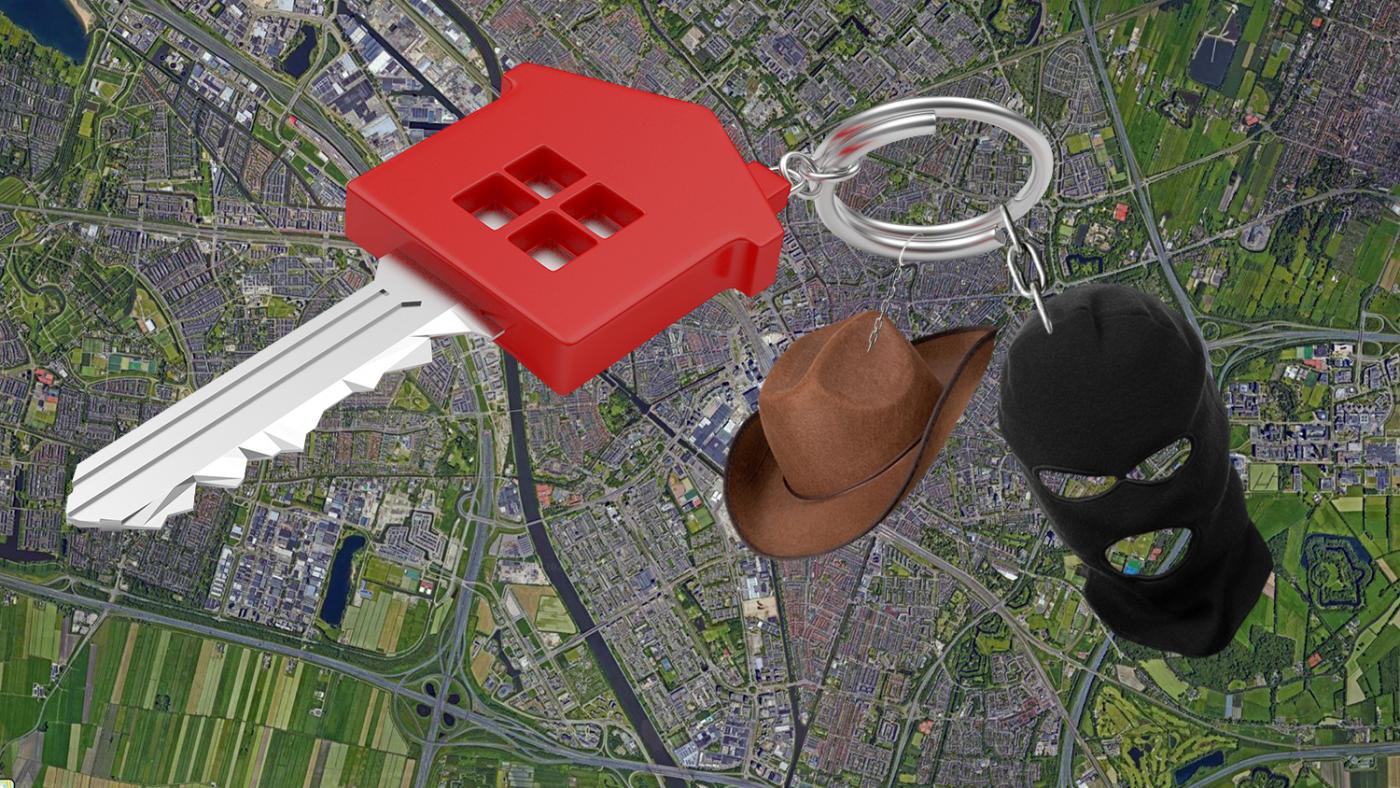DUB talks to three landlords
‘They’re making us out to be criminals’

The title of "Best Landlord of Utrecht", awarded by student organisation Vidius, and the less honourable title "Slumlord of the Year", awarded by the youth section of the Socialist Party, are the extreme ends of a broad spectrum. On the one hand, we have "horror landlords" like Marcel van Hooijdonk and Betty Chang, who are regularly criticised for renting out small, dirty rooms for excessive prices and then communicating poorly with their tenants. On the other hand, there are landlords who really try to go the extra mile for the renters.
The majority of Dutch students don’t really have any negative experiences with their landlords, according to a 2022 study by EenVandaag Opinion Panel. That’s not surprising — after all, there are around 300,000 people renting out rooms in the Netherlands. Although not all landlords will go that extra mile, they will not let you live with a mouldy bathroom.
Things are changing for them, mainly on the fiscal side of things. Last year, on Budget Day (Prinsjesdag, the day the government's annual budget is publicised, Ed.), the government announced that capital tax will go up by one percent a year until 2025.
A percentage of the taxed value of a rented home is considered part of that capital too. In the past few years, the percentage that gets taxed has increased as well from 67 percent to 95 percent, which means they have to pay more taxes on larger assets.
The yield that’s taxed on rented homes has increased as well. Also known as fictitious return, this yield does not consider the actual earnings on a home. Lobby organisation Vastgoed Belang (Real Estate Interests, Ed.) calculated that a net income on a home of 6,400 euros in 2021 will be no more than 4,000 by 2023.
The Dutch Minister of Housing and Social Planning, Hugo De Jonge, isn’t likely to show any sympathy to real estate investors. His own plans, in which rental homes will count as the so-called "social rent", don’t influence student housing much as student housing is always considered social rent after all. However, for quite a number of homes with their own front doors, this will mean having to set a lower rent.
The combination of these measures is rather detrimental to private investors who own a few homes. In an article published by the Dutch newspaper Trouw, the Professor in Housing Market Johan Conijn acknowledges their complaints and the fact that their image of slumlords is hindering them.
The "slumlord" is an easy target for both media and discontented students. Although they will have a harder time now, that doesn’t mean we have to pity them. But how do Utrecht-based landlords perceive all these changes, students, and their own roles in society? DUB gave them the opportunity to air their feelings.

‘The rules of the game are being changed during the match'
Camiel (43) lives in Breukelen with his wife and three children. Apart from his day job, he owns a property in Utrecht where four students live.
How did you come to own this property?
“It kind of just happened. My father-in-law bought a property fifteen years ago when his daughter was going to college. That way, she would have somewhere to stay in Utrecht. Shortly after that, another property became available on the same street. Renting it out was the most attractive investment, so he bought that building too. A few years ago, after he retired, he wanted to buy a campervan. So, my brother-in-law and I both bought one of the buildings from him. We already knew what they would yield, so there was little risk involved.”
Why did you do it?
“It was an investment, most of all. We don’t really make a profit off the rent, I use it to pay off the building’s mortgage. Perhaps my children will be able to live there one day.”
Is it nice, being a landlord?
“I usually enjoy interacting with the students. There are only women living in the building, which they prefer. There’s not much work to do, really. When someone leaves, they find a new tenant themselves. Renting a property out to students can be a nuisance sometimes, for example when you get messages about leaking pipes. But, as long as this is communicated in a normal way, it isn't too bad. In the end, it only takes up about one day a month, so it’s not a heavy job.”
Does communication with the tenants always go well?
“It’s important for everyone to stay relaxed, including me. Of course, there can be tension sometimes. For example, there’s a window on the ground floor that can’t open. This was done on purpose, to prevent people from breaking in, but it also means that the room gets incredibly hot in the summer. But even this type of discussion isn't that bad. I have never really had a bad tenant.”
What is your take on the national and municipal policies?
“There is a serious shortage of homes in Utrecht. Although I did raise my own rents, I try not to profit too much from it. But it also helps that I don’t depend on the rent, it is not my main source of income. I was once a student myself, so I don’t want students to be harmed by this shortage.
“But there are cowboys on the housing market taking advantage of this situation, for sure. Looking to combat that, the municipality has all but stopped giving out permits to rent out rooms. However, doing that only worsens the shortage. Besides, those permits cost a lot of money, which the majority of landlords tend to charge from their tenants.
“I really can't stand people being so negative about landlords. 'Look at those cowboys, those rotten apples'. Sure, they are among us, but that’s a small percentage. You never hear anything about the other 90 percent.
“Look, I don’t need an award for ‘best landlord’, but I do try to be a good one. What I do has societal value as student flats need to exist. But landlords have a bad reputation, so politicians decide all sorts of things to make things more complicated for us.
“The rules of the game are being changed during the match. For instance, the government sets an annual limit to how much rent can be raised. That used to be based on inflation but inflation is too high now, so the increase is now lower than inflation. On top of that, we’re being taxed more. I will follow the rules but that does make for a lower return on investment.”
In your view, what kind of social responsibility do landlords have?
“If you’re in real estate, you do have societal responsibility. Students are having a tough enough time as it is. How we’re treating them now, especially this 'unlucky generation' and their huge student debts ('Unlucky generation 'is how Dutch people refer to higher education students from 2015-2023, who did not have the right to a basic student grant from the government, having to take out significant student loans instead, Ed.)
We shouldn’t be treating young people this way. When students end up in the labour market, they need to have the freedom to innovate. With a 50,000-euro ball and chain around your ankle, you don’t have that freedom.”
Would you have gotten into student real estate in this day and age?
“No, there’s no way to get any return on investment. Rents are too low and the costs of buying a house are too high. Unless you ask for ridiculously high rents – which is something I don’t want to do.”

‘In five years' time, there will be no individuals renting out rooms to students anymore'
Coen (52) rents out rooms to students too. He does this next to a series of side hustles, which include working at a car dealership, organising events, and selling fireworks around New Year’s Eve. He’s been renting out several buildings on the outskirts of Utrecht for twenty years.
How did you get started?
“I had some money left over. After that, whenever I had money saved, I would buy a property.”
Do you enjoy renting out rooms?
“I still like it. But there’s a lot of mess in one of my houses, which sucks the fun out of it. But it’s simple, I can just stop renting it out and sell the property. A lot of things are fine by me, as long as I’m welcomed with a cup of coffee. I don’t want to face a hostile group of tenants. I just don’t want to do that, I’d rather quit.”
Does that happen a lot? How is your relationship with the tenants?
“It is usually okay. But, nowadays, it seems as though tenants are educated at university to make their landlord’s life a living hell. Together with the rental committee, they put a knife to your throat. Things used to be different but, in the past five years or so, tenants have been asking all kinds of complicated questions. As a landlord, you have to protect yourself, and it’s impossible to have a normal conversation with each other.”
Isn’t it a good thing that tenants know their rights now?
“Yes but you can talk about this in a normal way. Besides, there are so many things wrong with these rental committees. The point system they use, which calculates what would be an ‘appropriate’ rent, only looks at a limited number of factors. It doesn’t make any sense, there are many more factors at play. So, that price doesn’t relate to the actual value of the property.
“You can barely make a profit like this. That's why I’ve been considering turning many of those student rooms into apartments. I have to make the buildings more sustainable anyway, so why not do that as well?”
So, you wouldn’t get involved with the student-room market if you were starting out now?
“No, not anymore. Hugo de Jonge is completely senseless. He’s only making the housing crisis worse. We are being required to become more sustainable while taxes are being raised.
“As a result, our costs are increasing but rents aren’t increasing along with the inflation. For many landlords, the answer is easy: 'fine, I’ll just sell everything.' I’ve been hearing that a lot. I predict that, in five years’ time, there will barely be any individual landlords left in the student-room market. I’m going to quit soon myself. But the demand for rooms will be twice as high, so I don’t know how they’re going to solve that problem.
“Only organisations like SSH will be able to let rooms in the future. After all, they barely have any costs and they get millions in subsidies. SSH is a good initiative but that doesn’t mean you should make the lives of private investors a living hell.”
I guess you're saying that landlords' bad rep affects you?
“It's almost like you can't even say out loud that you’re renting out rooms to students because people will consider you a criminal. That's nonsense because, at the end of the day, it’s just a matter of supply and demand. If you chase away all the real estate investors, there might be more homes for sale but things won’t be any cheaper for students.
"Those ‘bad’ landlords are such a small percentage of the people investing in this market. There are tons of good landlords who ask for a fair rent.”

´I don't have an ounce of pity for people like Cheng or Van Hooijdonk’
The final landlord DUB spoke with is Broos Schnetz (71). These days, he only maintains his real estate but he’s had a long career. In 1997, he and his friend Henk Westbroek founded the political party Leefbaar Utrecht (Livable Utrecht, Ed.) for which he spent eight years serving as a member of the city council. He and Westbroek co-founded the café Stairway to Heaven, at Mariaplaats. Until he turned 65, he was involved in a number of social organisations. He now owns fifteen buildings. Ten of those have rooms rented by students.
How did you get into the student-room market?
“I bought my first property when I was thirty years old, in 1985. I worked for a long time at a bank, where I noticed that nine out of ten people who were successful had earned their capital through real estate. That’s not surprising because the data shows that the prices of real estate have only increased in the past 150 years — with a few slumps in between, of course.
“It had always been my biggest wish to become financially independent so I wouldn’t have to work for a boss anymore. That’s why I bought that building. Today, I have a lot more of them.”
Is it hard work, maintaining real estate?
“No, man. It’s not a big deal. If I spend half a day on it each week, that'd be a lot. But it helps that I’ve got people working for me, people who maintain the properties for me. I do try to be good at maintenance, by the way. It is my property after all and I want it to remain in a decent state. It’s also my duty as my tenants have the right to live comfortably.”
In your view, what is the social responsibility of landlords?
“I have to say that I didn’t get into this from a sense of social responsibility but I did start to feel it at some point. It sounds crazy perhaps, but I’ve always been a leftist.
“Some people call me a champagne socialist because, when you’re left-wing, you’re not supposed to have capital. I just think I can do good things with my capital too.
“That’s how I try to treat my tenants. Whenever there’s trouble, I go and solve it. I regularly skip rent increases and my rents are always below the point system. So, you could say that I’m acting in a social capacity, although not everyone would agree with that.”
Do you make sure to have a good relationship with your tenants?
“Our communication is excellent, indeed. They send me Christmas cards and holiday photos and, when people leave, they let me know how much they enjoyed living on my property. I’m making myself sound like half a saint now, hahaha. But that’s honestly what happens.”
When people talk about real estate investors, it’s often in a negative tone. Do you agree?
“It’s kind of always been that way. Thirty years ago, it was exactly the same, believe me. Things are scrutinised a little more these days, and more measures are being taken. But then again, it is rather absurd how little capital has been taxed so far. There’s a shift happening now and that’s fine with me.”
What is your opinion about the 'bad' landlord the media often talks about?
“I’m not in touch with any other landlords, really, so I only read about them in the newspaper. If those things are true, then that scum has to be handled. They’re basically breaking the law.
“I don't feel an ounce of pity for people like Chang or Van Hooijdonk. They’re bringing the negativity upon themselves. Personally, I haven’t suffered from a bad image. My tenants are happy.
“Currently, I'm working on becoming more sustainable by improving insulation in all of my properties. Technically, I don't have to do this. But the cost of heating my own home annoys me already and my pockets are a lot deeper than that of most students. That's why I’m trying to accommodate their needs as much as possible.”
What is your take on the national policy for renting out rooms?
“The rental committee has never knocked on my door, so that says something. You just have to stick to the rules. I can imagine that, if you’re starting out now, you won’t get much of a return. But, if you’ve been in this market for as long as I have, you don’t have much to complain about. If you do, that’s really your own doing.
“I do think the government could have done more when it comes to sustainability. It’s crazy that the point system for rooms is so outdated. There’s no incentive to increase sustainability. You can’t set a higher rent for a more sustainable building, so you just pay for everything yourself.
“Plus, in theory, if you rent a room in Delfzijl, you ought to pay the same as in the centre of Amsterdam. If the point system had been more nuanced, I think far more investors would have started buying student homes. I don’t have to tell you how big the shortage is. I just don’t understand it. Why things are the way they are is something you’d have to ask Hugo de Jonge.”
Is it fun to own these buildings?
“Yes. It’s fun to have something tangible. Besides, I don’t have anything bad in my portfolio: they’re all beautiful buildings, and many of them are either municipal or national monuments. It’s nice to maintain such things.”